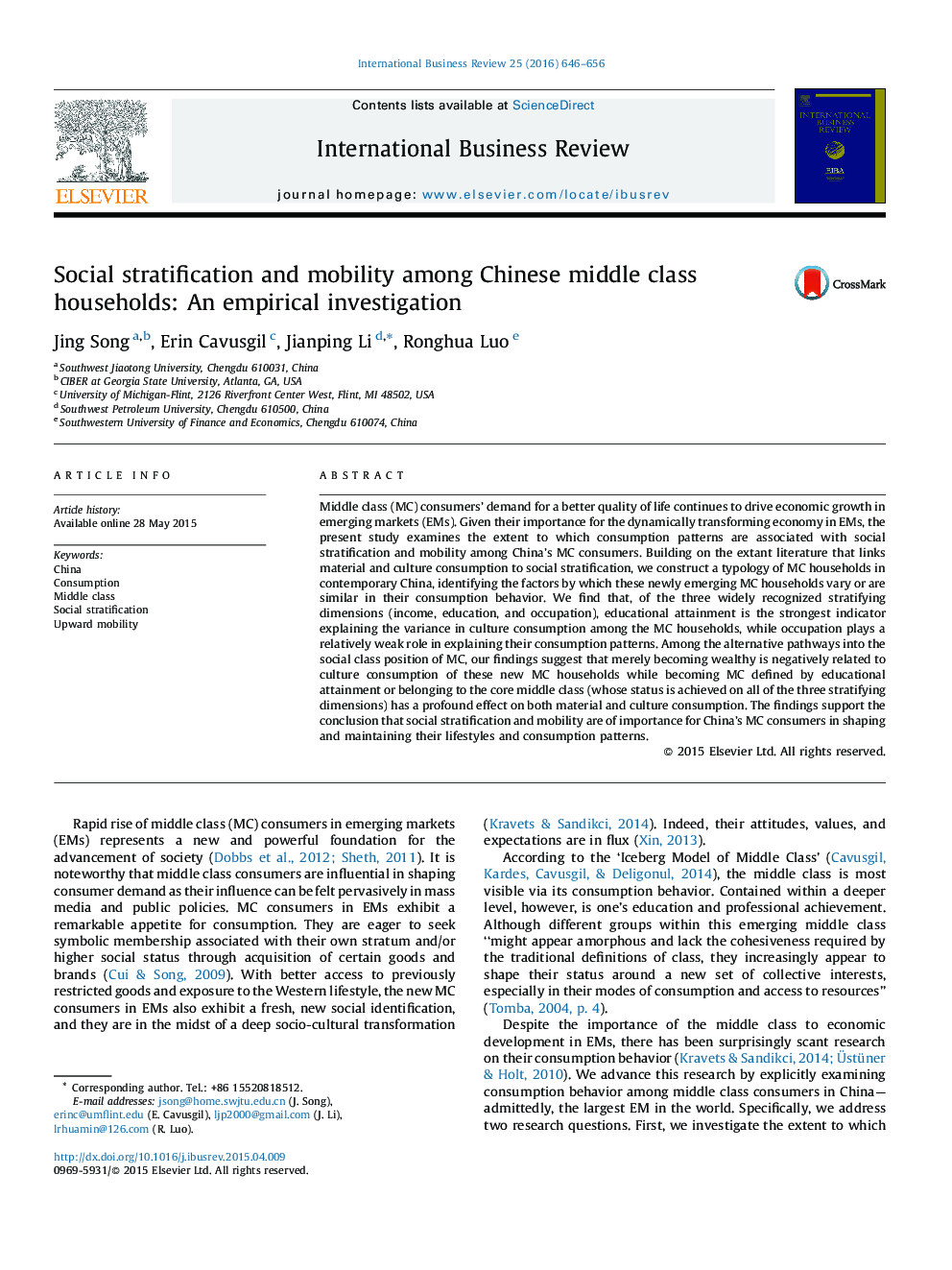| Article ID | Journal | Published Year | Pages | File Type |
|---|---|---|---|---|
| 1000200 | International Business Review | 2016 | 11 Pages |
•A typology of China's MC is provided.•Social stratification and mobility explain MC consumption.•Education-defined MC or core MC explains MC consumption.
Middle class (MC) consumers’ demand for a better quality of life continues to drive economic growth in emerging markets (EMs). Given their importance for the dynamically transforming economy in EMs, the present study examines the extent to which consumption patterns are associated with social stratification and mobility among China's MC consumers. Building on the extant literature that links material and culture consumption to social stratification, we construct a typology of MC households in contemporary China, identifying the factors by which these newly emerging MC households vary or are similar in their consumption behavior. We find that, of the three widely recognized stratifying dimensions (income, education, and occupation), educational attainment is the strongest indicator explaining the variance in culture consumption among the MC households, while occupation plays a relatively weak role in explaining their consumption patterns. Among the alternative pathways into the social class position of MC, our findings suggest that merely becoming wealthy is negatively related to culture consumption of these new MC households while becoming MC defined by educational attainment or belonging to the core middle class (whose status is achieved on all of the three stratifying dimensions) has a profound effect on both material and culture consumption. The findings support the conclusion that social stratification and mobility are of importance for China's MC consumers in shaping and maintaining their lifestyles and consumption patterns.
